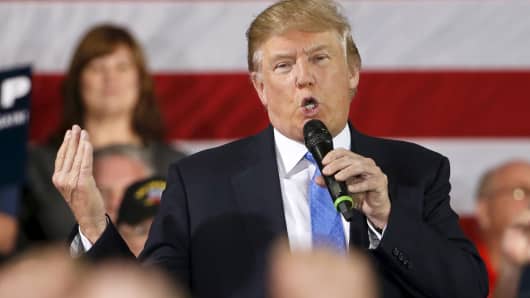The U.S. economy hit a soft patch in the first three months of 2016, slowing to an annual growth rate of just 0.8 percent, according to the government's latest reporting. Since then, the economic data have been flashing mixed signals.
Consumer spending surged in April, posting the biggest gain in nearly seven years. But Friday's report on the U.S. job market showed the pace of hiring slowed sharply in May, and was weaker than originally reported in the prior two months.
The slowdown comes as businesses are growing increasingly uneasy about the outcome of the presidential election, and the wider uncertainty about the policies advanced by the next occupant of the White House.
That political uncertainty was cited by nearly 60 percent of the economists surveyed as a drag on the U.S. economy this year.
"Businesses are generally prepared to not have everything go their way, but they have a much harder time when they don't know what's going to happen or what to expect," said Greg Daco, head of U.S. macroeconomics at Oxford Economics and a NABE survey analyst.
Some of the specific policy proposals have also raised concerns, including those by presumptive Republican presidential nominee Donald Trump to get tough on U.S. trade partners China and Mexico.
"When you put that type of policy in an economic model you see that the U.S. ends up being a loser if it starts a trade war," said Daco.




